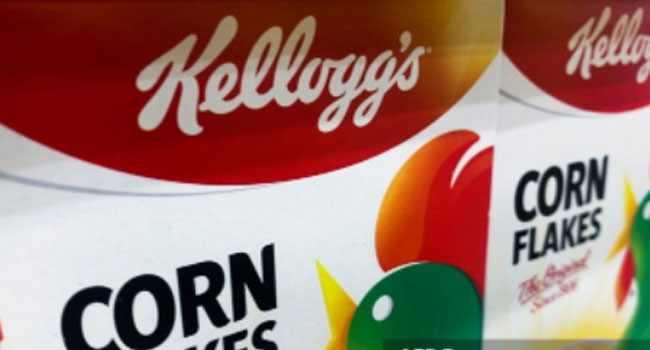
Cereals giant Kellogg’s said Wednesday it had launched a legal challenge against new rules that will limit the prominence of sugary foods in English shops as part of a new campaign against obesity.
The government’s strategy only calculated the fat, salt and sugar content of cereals when eaten dry, not when taken with milk, the US company said in a statement announcing the judicial review.
“We’ve tried to have a reasonable conversation with the UK government over the past 12 months about making this change, but to no avail,” Kellogg’s UK managing director Chris Silcock said.
“All of this matters because, unless you take account of the nutritional elements added when cereal is eaten with milk, the full nutritional value of the meal is not measured,” he said.
The new regulations, which take effect in England in October, will also ban television advertising of unhealthy foods before 9:00 p.m., to try to limit children’s exposure.
The state-funded National Health Service (NHS) estimates that some 10 percent of four- and five-year-olds are obese, and it is double that figure for those aged 10 and 11.
It adds that one in four adults are obese, with cheap, high-calorie foods blamed in part.
The government said it would resist the challenge by Kellogg’s, noting that obesity costs the NHS more than £6 billion ($7.5 billion) a year and is the second biggest cause of cancer in the UK.
“Breakfast cereals contribute seven percent — a significant amount -– to the average daily free sugar intakes of children,” a health ministry spokesman said.
“Restricting the promotion and advertising of less healthy foods is an important part of the cross-government strategy to halve childhood obesity by 2030, prevent harmful diseases and improve healthy life expectancy, so we can continue to level up health across the nation.”

